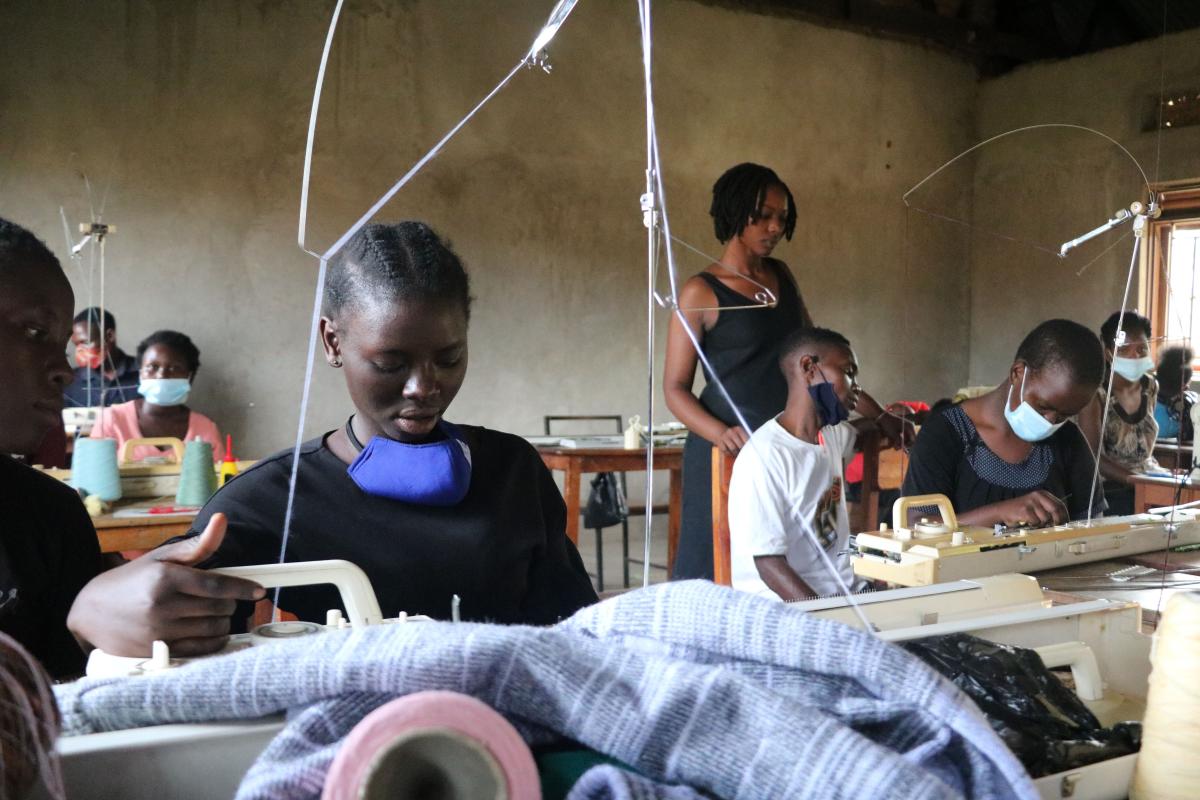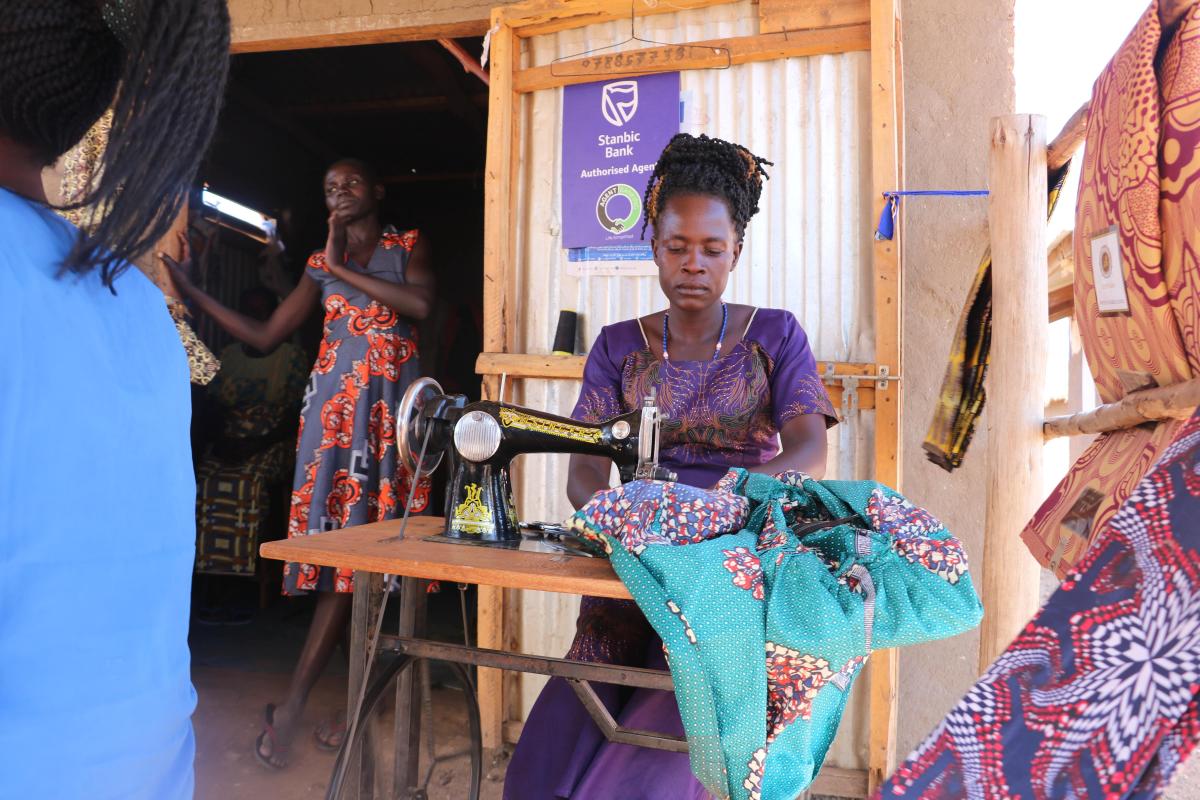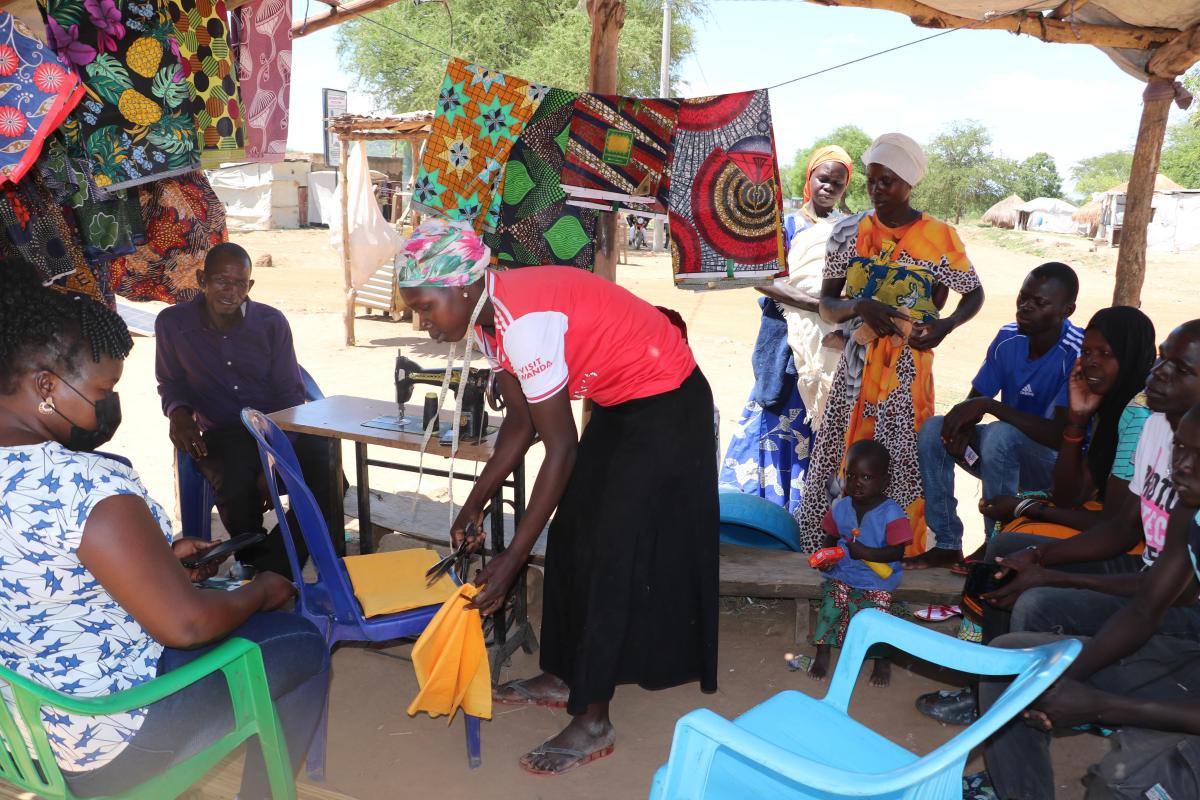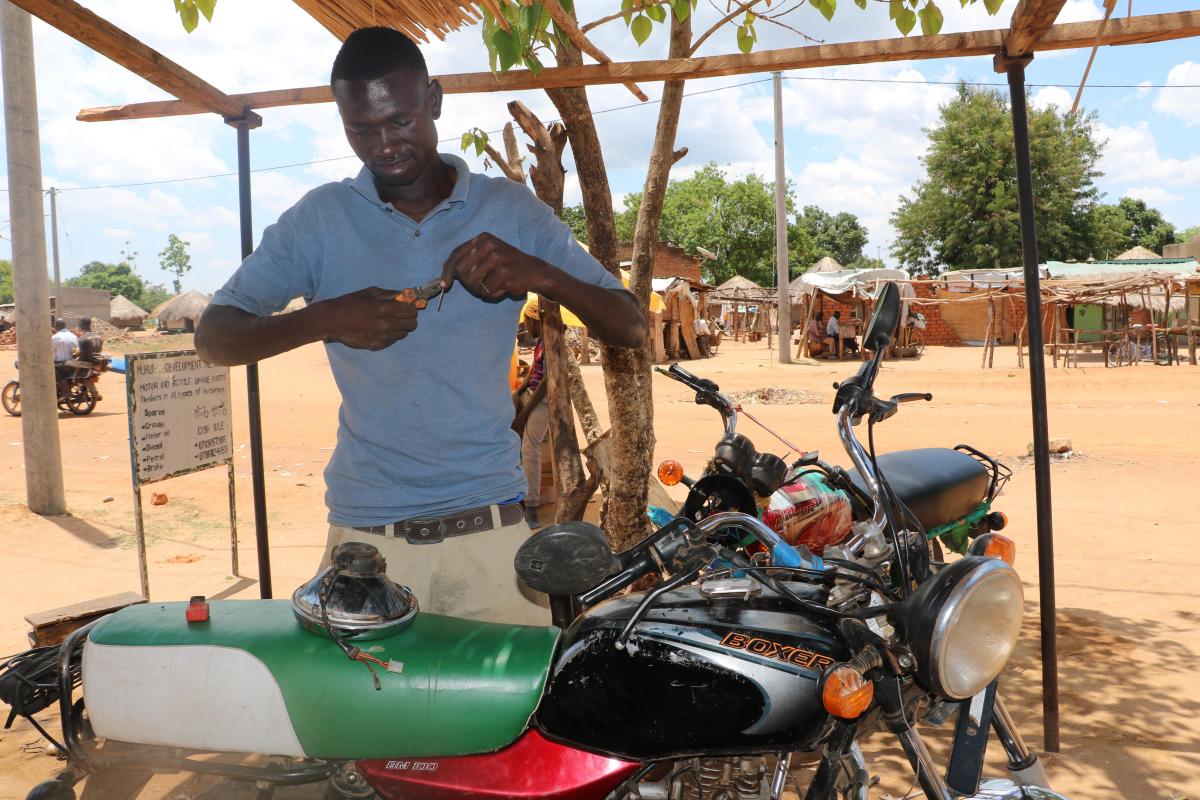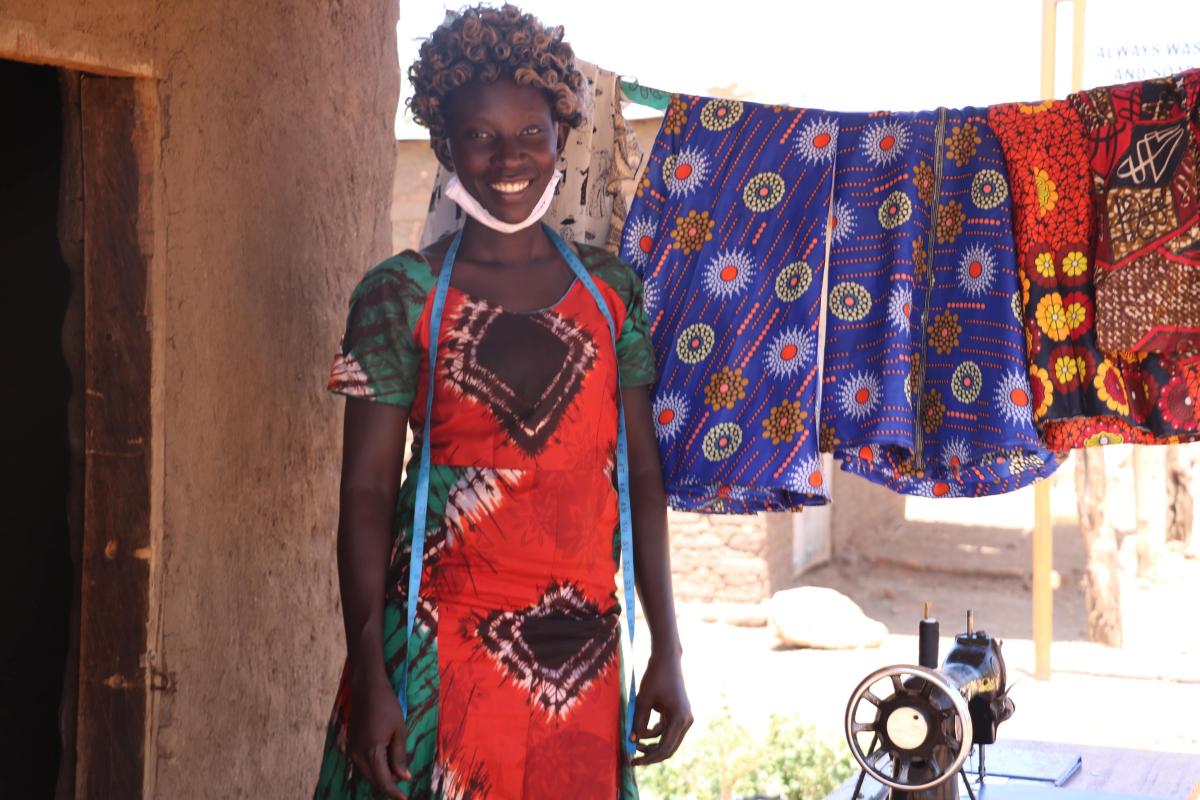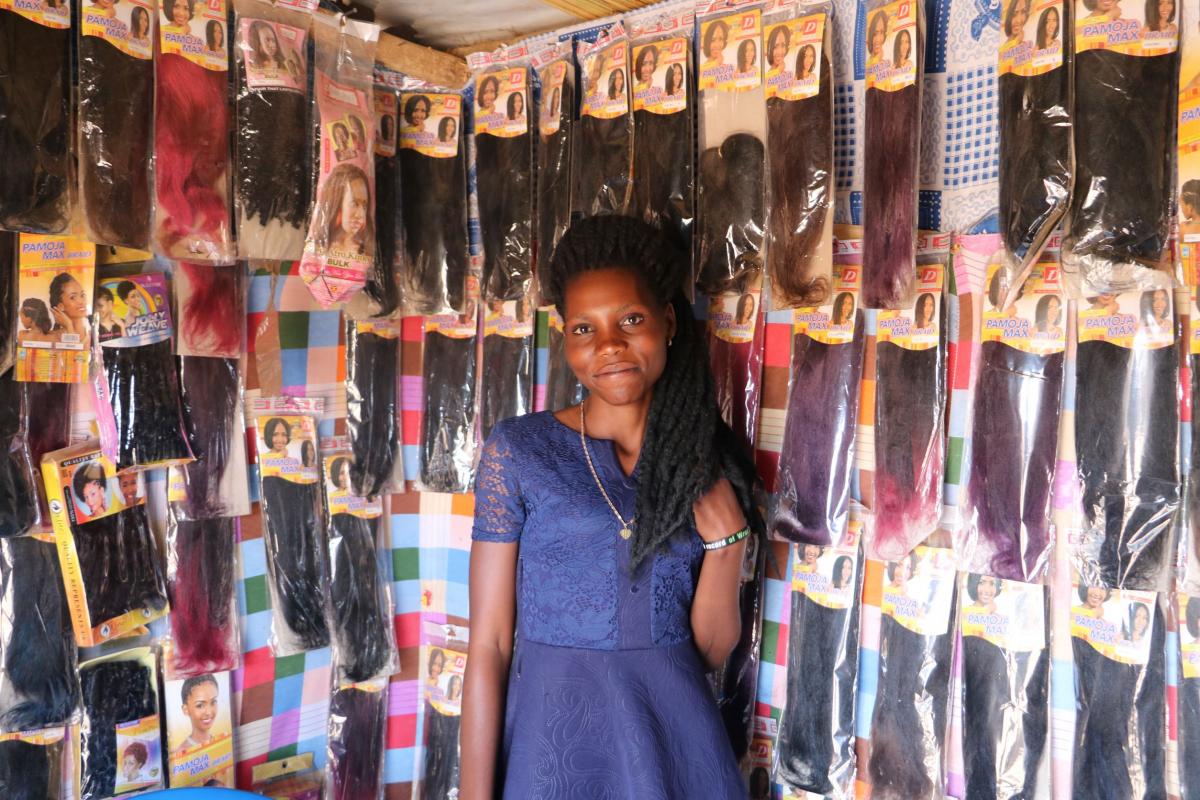Search
Viewing 1560 to 1575 of 3120 news
-
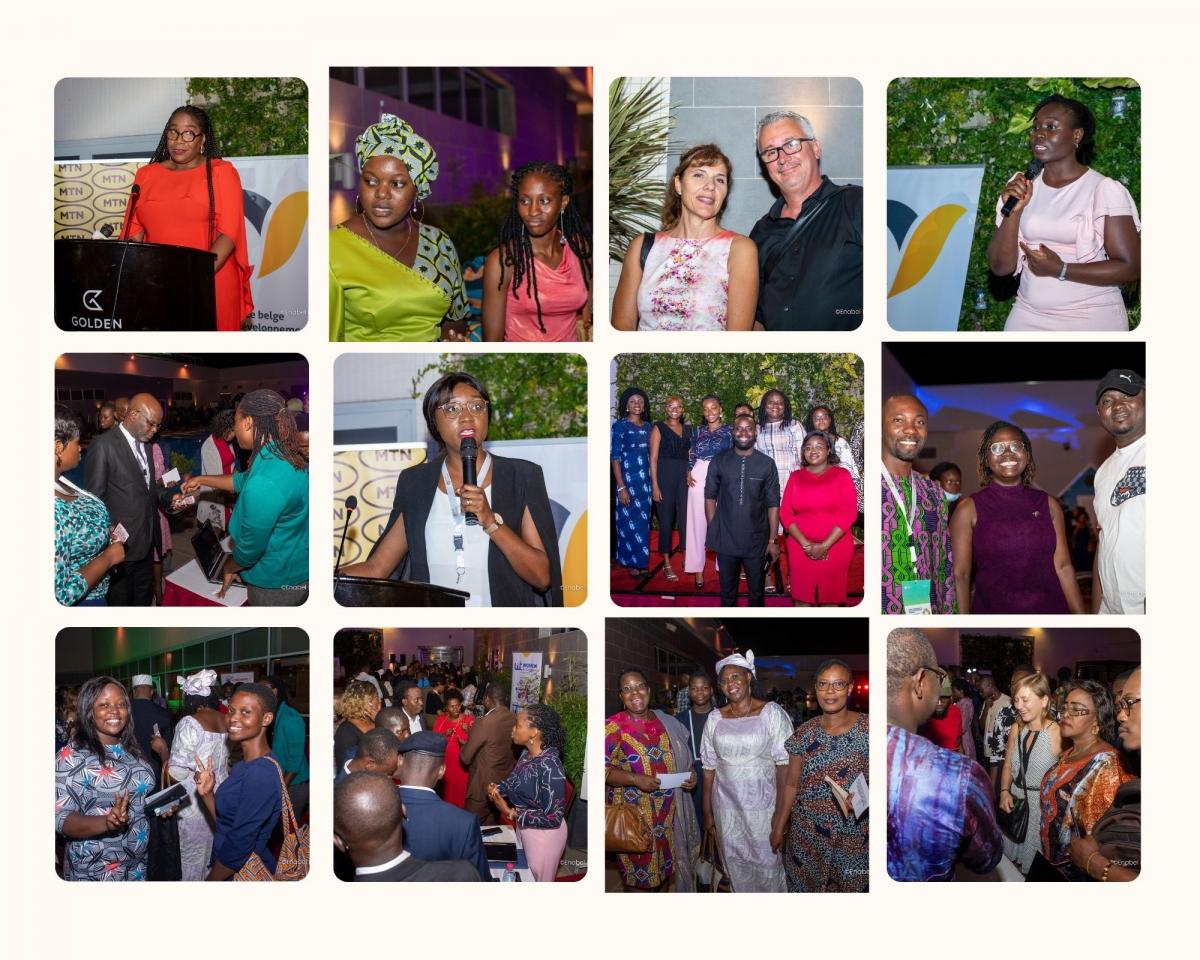
Enabel participe au Bénin Investment Forum 2022
Reece-hermine ADANWENON | 24/06/2022
Il s’est tenu ce jeudi 23 juin autour de la piscine du Golden Tulip, la cinquième édition de la startup night. Organisé par le Bénin Investement Forum en collaboration avec le Woment In Tech, avec l’appui technique et financier du projet DigiBoost, un projet financé par l’Union Européenne, et mise en œuvre par Enabel au Bénin. Cette soirée avait pour objectif, de mettre en lumière les femmes entrepreneures, les amazones du digital qui apportent des solutions technologiques innovantes.La soirée a démarré par la cérémonie d’ouverture ponctuée par des allocutions de plusieurs personnalités qui ont rehaussé cet événement. Il s’agit de la Directrice de MTN Bénin Madame Uche Ofodile ; La Sécrétaire Général du WIT, Mme Elodie Akotossodé, le président de la fondation WANNOU et promoteur du BIF Monsieur Bernard Wannou et l’Intervention Manager du projet DigiBoost Mme Emmanuelle Bouiti.Dans son allocution, Mme Emmanuelle BOUITI a rappelé que le projet DigiBoost s’est positionné sur cette activité, la « Startup Night » non parce qu’elle adresse particulière les femmes entrepreneurs, mais plutôt du fait qu’elle permet aux femmes Tech de se rencontrer, de présenter leurs innovations, de réseauter et de partager des idées qui peuvent faire avancer leurs projets, tout en les mettant en contact direct avec les investissements, les Business Angels, les PTF et les institutions étatiques.La soirée s’est donc poursuivi avec les présentations de plus d’une dizaine de solutions numériques qui touchent plusieurs domaines (agriculture, santé, mode, finance, digital marketing…). La phase de pitch a été suivie par la visite des stands d’expositions des projets afin de comprendre et d’avoir plus d’informations sur les solutions qui ont été présenté. La soirée s’est clôturée dans une ambiance conviviale marquée d’échanges, un moment de réseautage qui a amené les startups à discuter avec les organisations et particuliers présents dans le but de découvrir les opportunités qui s’offrent à eux.
-
Deaf teenager in Uganda tailors her way into becoming a business owner
Racheal AKELLO | 24/06/2022
As a deaf and dumb teenager in a hearing world, Masika Bridget from Kasese, who is now 18 years old, enrolled in a program in tailoring and garment making in February 2022. Bridget enrolled for a 6 months course with the Kasese District Union of Persons with Disabilities (KADUPEDI), a project funded by Enabel through the Skills Development Fund (SDF). In the African society, particularly in Uganda, Persons With Disabilities (PWDs) are often considered insignificant and little or no care is shown towards these people, due to lack of education or skills. However, KADUPEDI decided to demystify this general outlook by providing a platform for disabled youth in Kasese and Bunyangabu districts to empower themselves. ‘Most of the disabled youth resorted to begging on the urban streets as a means for survival. Therefore as KADUPEDI, we decided to improve the standards of living of PWDs in the community through skills development,’ said Joshua Migyenyi, the Chairperson of KADUPEDI. In a country grappling with youth unemployment due to lack of quality skills, Bridget is or rather was one of the statistics in this category. However, with the grant given to KADUPEDI by Enabel, Bridget is starting to realise her dream of becoming a business owner. ‘Despite my hearing inability, I hope to one day start my own business and employ people like me,’ said a cheerful Bridget, as she operates her sewing machine. With the help of Biira Racheal, the sign language expert and interpreter, Bridget explains that she enrolled for this training due to a lack of tuition which forced her to drop out of school. Therefore, instead of sitting at home redundant, Bridget decided to respond to a radio advert calling for disabled youth to join skills development training. Bridget observed that this would be her chance to make herself useful and self-reliant. Although Bridget has just started this training, she says that when she starts making money, she will advise more youth like her about the goodness of skills training and encourage them to join such programs. The Support to Skilling Uganda programme has trained over 12,656 youth, women and girls in formal and informal courses such as Bakery, Soap making, Tailoring and so on, under the Skills Development Fund (SDF). The SSU programme is jointly funded and implemented by Ireland, Belgium and the European Union and operates in the regions of Karamoja, Albertine-Rwenzori and Northern Uganda, respectively.
-

Vidéo - Au Bénin, l’AFD et Enabel dotent l’hôpital de Zone-Sanitaire de Dassa-Glazoué d’un incinérateur semi-électrique
Reece-hermine ADANWENON | 24/06/2022
Samuel Van Steirteghem, intervention-manager du projet Equité financé par l’Agence Française de Développement, AFD, et mis en œuvre par Enabel a officiellement remis au Directeur Départemental de la Santé des Collines, le Dr Codjo Dandonougbo un important lot d'équipements médico-techniques. C’était le mercredi 15 juin 2022 au cours d’une cérémonie fort simple qui a réuni plusieurs responsables de la santé dans le département des Collines. Le lot de matériels est composé de :- Un incinérateur semi électrique de type moderne d’une capacité de 200 kg de déchets par jour avec un abri de protection ;- Des équipements de gestion des déchets biomédicaux (sachets, boites de sécurités, poubelles, gants, pulvérisateur de solution chlorée …) ;- 2 tricycles entièrement couvert à l’arrière pour le transport sécurisé des déchets biomédicaux des formations sanitaires périphériques vers l’incinérateur installé à Dassa.- 50 tablettes pour la gestion des plaintes et les enquêtes de satisfaction des patients pour la Plateforme Nationale des Utilisateurs des Services de Santé (PNUSS) et- des armoires et matériels bureautiques appuyer les comités de gestion de santé (Coges) de la Zone Sanitaire Dassa- Glazoué. D’un coût global de. 92.500.000 de Fcfa ces équipements permettront de soutenir l’amélioration de la gestion des déchets biomédicaux dans la zone sanitaire de Dassa Glazoué. Tour à tour, Osée Akpaki, représentant du maire de Dassa, Jacques Akpovi, médecin-coordonnateur de la zone sanitaire Dassa-Glazoué, Codjo Dandonougbo, Directeur Départemental de la Santé (DDS-Collines), Olivier Kayodé Danvi, président du Comité santé ont exprimé leurs gratitudes pour cet appui de l’AFD à travers le projet EQUITE. Ils ont promis faire une utilisation judicieuse de l’incinérateur et des autres matériels afin que « ce mariage AFD - Enabel et l’hôpital de zone connaisse un lendemain meilleur ».
-
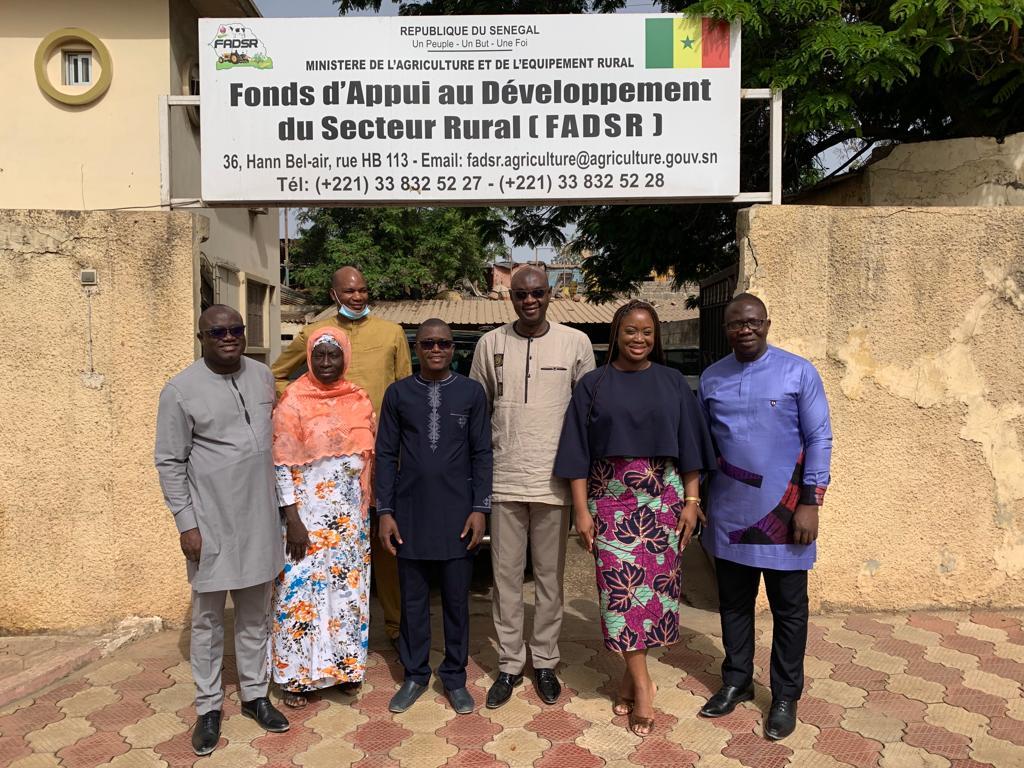
Une équipe du Fonds National de Développement Agricole (FNDA) en apprentissage au Sénégal avec l’appui d’Enabel au Bénin
Reece-hermine ADANWENON | 24/06/2022
Du 16 au 20 mai 2022, une délégation du FNDA conduite par Léonard Valère HOUSSOU, Directeur Général du Fonds, a effectué une visite d’échange d’expériences au Sénégal.Organisé avec l’accompagnement d’Enabel au Bénin, à travers le programme « Développement de l’Entreprenariat dans la Filière Ananas » (DEFIA), cette visité a permis à l’équipe de rencontrer plusieurs structures privées et nationales actives dans le financement agricole et rural et dont les missions recoupent celles du FNDA, à savoir : · Le Fonds National de Développement Agro-Sylvopastoral (FNDASP) et Fonds d’Appui au Développement Secteur Rural (FADSR), logés au sein du Ministère de l’Agriculture et de l’Équipement Rural ;· Le Fonds d’Appui à la Stabulation (FONSTAB), logé au sein du Ministère de l’Élevage et des Productions Animales ;· Le Fonds de Garantie des Investissements Prioritaires (FONGIP) ;· La Banque Agricole (LBA), ex Caisse Nationale de Crédit Agricole ;· La Banque Nationale de Développement Économique (BNDE) ;· La Compagnie Nationale d’Assurance Agricole (CNAAS) ;· L’U-IMCEC, une institution de microfinance ayant un guichet agricole. Les deux points d’orgue de cette mission ont été à coup sûr : la réunion de bienvenue organisée par Enabel Sénégal (qui a assuré toute la logistique sur le terrain (Enabel #One team !) et l’audience accordée par le Secrétaire Général du Ministère sénégalais de l’Agriculture et de l’Équipement Rural, en présence des Conseillers techniques du Ministre, du Directeur Général de l’Agence et des Responsables des Services compétents. Le Directeur Général du FNDA et son équipe reste très satisfaits de cette mission, comme l’illustre ces mots : « Cette visite nous a été d’un apport estimable, tant du point de vue des informations reçues que des contacts établis. Elle nous a d’abord permis de nous rendre compte de l’exhaustivité des instruments de financement agricole et rural mis en place par nos amis sénégalais et qui prennent en charge tous les défis : refinancement des IMF, financement des MPME agricoles et rurales, garantie, assurance agricole, financement du conseil agricole, financement des interprofessions, etc. Nous avons ensuite été particulièrement impressionnés par les synergies développées entre acteurs, par la cohérence du dispositif et par le rôle central de la Banque Agricole et de la Compagnie Nationale d’Assurance Agricole. Enfin, nous avons pu jeter les bases pour développer des partenariats stratégiques avec certaines structures rencontrées ». Pour rappel, cette visite s’inscrit dans le cadre de l’exécution de la convention de subsides signée entre les deux parties le 17 décembre 2020 et portant sur la mise en place de mécanisme de subventions adossée au crédit. Elle participe du soucis d’Enabel de contribuer efficacement au renforcement des capacités techniques du FNDA. Le FNDA est un fonds mis en place par le Gouvernement du Bénin et qui se positionne au cœur de la stratégie d’appui au financement agricole. Il a pour objet de « faciliter l’accès au financement pour la promotion de l’investissement privé dans le secteur agricole et de l’orienter par des subventions ciblées et des instruments financiers adaptés vers des activités qui permettent une meilleure exploitation du potentiel agricole national et qui contribuent à l’amélioration des revenus agricoles et à la sécurité alimentaire en encourageant la promotion des filières agricoles ».
-
Uganda: Tailoring gave me a new lease of life, says Ariye
Catherine BEKUNDA | 23/06/2022
When war broke out in South Sudan, Flora Ariye could only think of saving her life and two children. She ran to neighbouring Uganda, leaving behind her husband. The mother of two was resettled at Bidibidi refugee settlement in Uganda’s North-Western district of Yumbe on 11th November 2016. While in South Sudan, Ariye was a housewife and hence relied on the husband for every need. The husband's absence and the need to look after the children yet she lacked a means of livelihood traumatized her. “I used to stay home doing manual work,” she recalls. Thankfully, this situation was short-lived. Ariye’s attention was one day brought to skills development opportunities by Enabel and Finn Church Aid through a project called Support to Skilling Uganda. The initiative targeted refugee and host community youth, women, and girls. She found it exciting and grabbed the opportunity with open arms. Ariye trained in fashion and garment cutting. This was later complemented by business management training to sharpen her entrepreneurial skills. After completing training, Ariye felt she had everything required to become a successful entrepreneur. “The training was great. The business management training in particular improved my negotiation and customer care skills,” she says. In April 2019, Ariye made what she believes is one of the best decisions of her life. She established a clothing business. Life has since never been the same. “I now earn daily. During the Christmas season, business gets even better. I earn between 25,000 – 30,000 shillings,” she says. Ariye is now able to take care of her two children and save part of the earnings for future use. She hopes to one day reunite with her husband and continue the business back home in South Sudan. The young mother is one of the over 4000 refugees and hosts trained by Enabel and partners in West Nile and Kiryadongo through the Support to Skilling Uganda project. The initiative funded by the European Union Emergency Trust Fund aims to equip refugees and host community youth, women, and girls with the skills for employment and job creation in order to improve their standard of living.
-
Uganda: Skills development enables Queen to establish a clothing business
Catherine BEKUNDA | 23/06/2022
Few years ago, Queen Misila, a Ugandan national residing in Yumbe district would struggle to believe she would one day be an entrepreneur. The 24-year-old’s fortunes however changed following a 3-months training in tailoring where she also acquired entrepreneurial skills. Her training was sponsored by Enabel under the Support to Skilling Uganda (SSU) project and delivered by the Norwegian Refugee Council. Misila used her newly acquired skills and savings to start a business which she named “Misila Clothing Enterprises”. She makes clothes of various designs and fashions. "The training made me produce quality work and through the word of mouth, my customers have marketed my services,” the cheerful third-born explains. Misila says the demand for her products is high and the future looks bright. She can now look after her family. “I make average weekly sales of 200,000 shillings. Out of this, I save 12,000 shillings,” she adds. And there is a secret for her business success. “For those that buy cloth material from me, I offer a discount of 5000 shillings off the labour costs. I charge the rest 15,000 shillings if they buy the material elsewhere,” she reveals. Her business like, others, also encounters challenges. The biggest challenge is limited capital to further expand the business. Although she managed to get a loan, it is inadequate. The cost of transporting materials from Arua to Yumbe is also high. “I must confess that I previously worked on losses because of the transport to and from Arua,” she says. But Misila has big plans for the future. The mother of 3 wants to expand the business. She recently acquired a loan from her Village Saving and Loan Association to buy extra clothes for sewing. Additionally, she wants to replace the sewing machine since it’s frequently breaking down making her incur high repair costs. The SSU project aims to enhance the employability of refugee and host community youth, especially women and girls through vocational training and entrepreneurship skills to improve their standard of living. More than 4000 people have been trained to date. The project is funded by the European Union Emergency Trust Fund.
-
Uganda: "My customers have increased", says Abujeri Miragi
Catherine BEKUNDA | 23/06/2022
It is a shiny afternoon in Okuban Village, Ariwa Sub Country in Yumbe District. This area is home to Ugandan nationals and South Sudanese refugees. 23-year-old Abujeri Miragi, a national is busy in his motorcycle and motor vehicle repair garage attending to clients. Miragi’s major customers are motorists in his Sub County. The global economic hardship has not spared his business. He says business is slow nowadays. However, he manages to get up to six clients daily. “I used to earn about 8,000 shillings daily but it has risen to 15,000 shillings since my training,” Miragi says. On good days especially when he repairs a motorcycle engine, Miragi earns between 25,000 – 30,000 shillings. The father of one has learned to save part of his earnings at his village saving scheme. “I have now saved a total of 260,000 shillings. I hope to construct a big house out of the savings in the near future,” he says. The biggest obstacle the business faces is lack of spare parts in the trading center. He often travels up to Yumbe town to buy them. He says this is tiring and time-consuming. “I will need between 2 million – 3 million shillings to establish a spare parts shop,” Miragi explains. Using the mechanics skills, Miragi who dropped out of school in primary four is hopeful of providing a better future for his son. Miragi was trained in motor vehicle mechanics by a Mastercraft person in Koboko through the Support to Skilling Uganda project implemented by Enabel and the Ministry of Education and Sports. The project focuses on increasing access to quality skills development through training, scholarships, entrepreneurship skills and start-up kits for refugees and host communities. Tracer study results show that 7 out of 10 graduates of the project find employment within 6 months after completion of course. The Support to Skilling Uganda project is funded by the European Union Emergency Trust Fund.
-
In Uganda, Christine hopes for huge tenders
Catherine BEKUNDA | 23/06/2022
The 24-year old Christine Night fled South Sudan in 2016 when war broke out. She had just completed senior one. Christine now lives in Bidi Bidi refugee settlement, Yumbe District. On arrival at the settlement, she says life was challenging. Christine spent several months jobless.The situation however started to change after she was accepted for a skills training programme by Enabel and the Norwegian Refugee Council. Christine was trained in tailoring and garment cutting. The zone 4 resident started a clothing business shortly after completion of the training. She named the business “God’s wish tailoring”. Life has never been the same ever since Christine started the business. She has become one of the highly sought-after school uniform designers in the settlement. The demand for uniforms is high here. A pair of shorts costs 15,000 shillings while a shirt is 11,000 shillings. She charges 12,000 shillings for a full “kitenge.” “Individual parents contract me to make school uniforms for their children. My desire is to get a school tender and be the sole supplier. However, this requires a lot of capital which I do not have at the moment,” Christine says. To boost her entrepreneurial skills, Christine underwent a business management training which provided her with additional skills including customer care, digital marketing and bookkeeping. “I have learnt how to cost and price my business. I now welcome my customers, I also can send an email and WhatsApp messages with orders of my kitenge,” she confesses. Although she does not own a smartphone, she uses the one of a friend with whom she attended the training. Christine sometimes learns about new fashion trends from YouTube through her friend’s phone. “I give her 2,000 shillings for data and check out YouTube for new fashions and how to cut cloth for such designs,” she reveals. Like any business, she encounters challenges. Her major setback was when thieves broke into the shop and took off with 9 rolls of cloth material.She now shifts her merchandise on a daily basis to and from home for safety reasons. But this is hectic. Additionally, she markets her products by word of mouth and sometimes has to trek long distances to tell people about the business.The challenges withstanding, Christine manages to save 12,000 shillings every week. The mother of three is one of the 4830 refugee and host community youth, women and girls Enabel equipped with employable skills through the Support to Skilling Uganda (SSU) programme.SSU focuses on increasing access to quality skills development through training scholarships, entrepreneurship skills and start-up kits for refugees and host communities. The project is funded by the European Union Emergency Trust Fund.
-
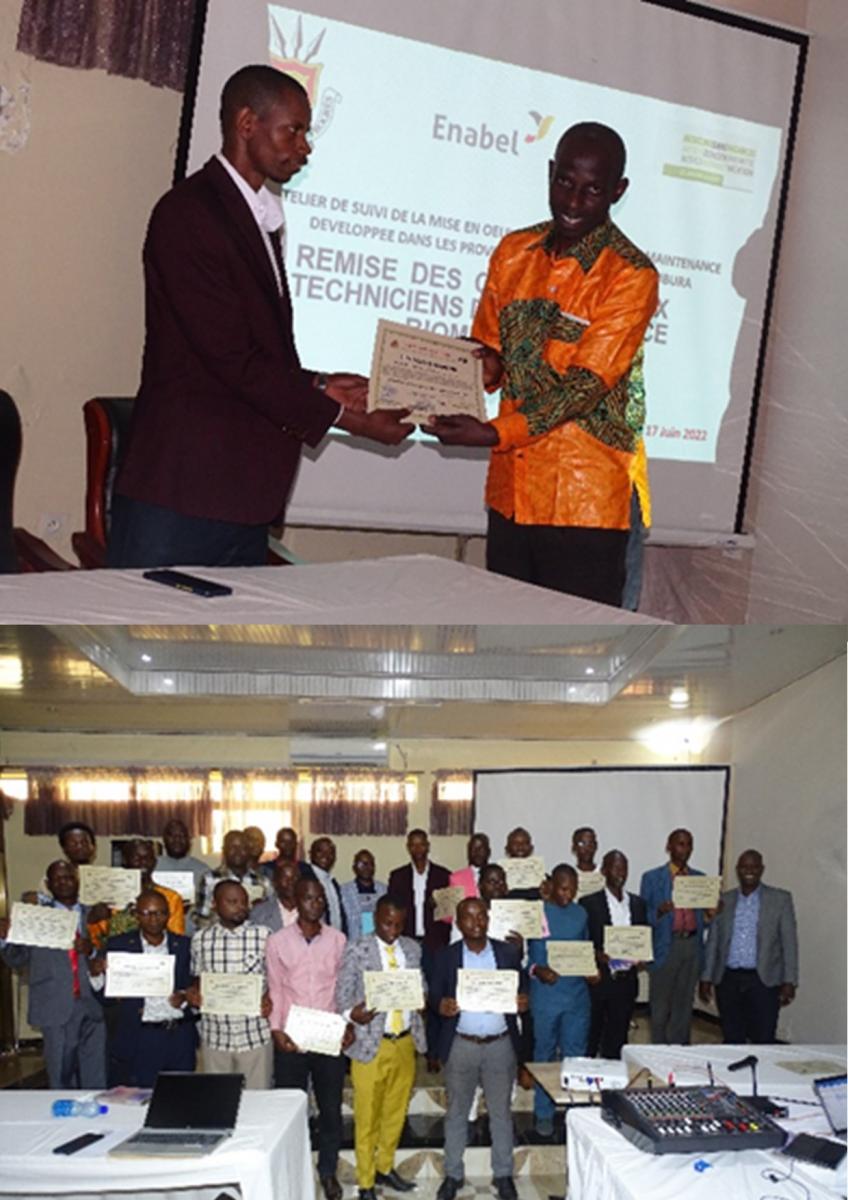
Au Burundi, la maintenance des équipements médicaux, l'un des points d’attention phare du projet PAISS
Jean BIRONKWA | 22/06/2022
Le Programme d’appui institutionnel au secteur de la santé au Burundi, PAISS 5, financé par la Belgique a organisé, du 14 au 17 juin 2022 à Bujumbura, un atelier de suivi de la mise en œuvre de la stratégie de maintenance décentralisée développée dans les provinces de Rumonge et Bujumbura. Le PAISS 5 contribue à l’augmentation en qualité et quantité des prestations de santé au bénéfice de la population par l’amélioration de la gestion et maintenance des infrastructures et équipements. Une trentaine de techniciens de maintenance, des gestionnaires des bureaux de districts sanitaires et des agents de la direction des infrastructures sanitaires et équipements (DISE) du Ministère de la Santé publique et de la Lutte contre le Sida ont été accompagnés par le Programme PAISS 5 en vue de les renforcer en gestion et maintenance des équipements sanitaires. Les techniciens de maintenance ont été initiés au monitoring du Plan opérationnel de maintenance de leur structure et au suivi de l’évolution de l’état du parc d’équipements. Des travaux dirigés ont permis entre autres, de travailler à la mise à jour des inventaires, des plans de maintenance et à la mise au rebut des équipements déclassés. Cet appui a permis aux hôpitaux d’élaborer des plans annuels de maintenance pour les activités de maintenance des équipements et la rédaction des contrats type de maintenance par famille d’équipements. En clôture de cet atelier, une remise officielle des certificats de formation à la maintenance biomédicale a eu lieu pour les 22 techniciens bénéficiaires. Cette remise clôt un cycle de formation modulaire de 2 ans donnée par Médecins sans Vacances, partenaire du PAISS 5 pour le volet renforcement des compétences des techniciens et utilisateurs des équipements. Les techniciens ont exprimé leur joie d’avoir reçu les 11 modules de formation de 720 heures. Au nom des participants à la formation, Pierre Ndayiziga, technicien de l’hôpital Buhiga dans la province sanitaire de Karuzi s’est exprimé : « ... avec cette formation, nous avons appris à utiliser de manière professionnelle la Gestion de la maintenance assistée par l’Ordinateur la GMAO, nous avons appris à réparer les aspirateurs, concentrateurs, microscopes, lampes signalétiques, etc. Cette formation nous a enrichis avec de nouvelles connaissances. Je suis sûr que cette formation va apporter un changement très profond à mon hôpital car auparavant il y avait beaucoup de choses qui m’échappaient en rapport avec la maintenance de ces équipements. Cette rencontre a été une occasion pour nous de voir plus loin en ce qui est de la gestion des équipements biomédicaux. Je remercie le bailleur pour avoir pris en main cet appui aux techniciens, nous souhaiterions que des appuis et accompagnements de ce genre puissent continuer pour que nous puissions être à la hauteur de la gestion des équipements biomédicaux. Au nom du Ministère de la Santé publique et de la Lutte contre le Sida, le Directeur Général des ressources, Monsieur Jean Charles Ntahimpera a félicité les techniciens qui ont participé à cette formation. Il leur a recommandé de mettre leur expertise et compétences acquises à la disposition de leurs formations sanitaires respectives pour contribuer à améliorer la qualité des soins et services de santé en faveur de leurs populations. Ce cursus de formation octroyé par MSV dans le cadre du Programme d’appui institutionnel au secteur de la santé au Burundi s’inscrit dans les priorités de la Direction des infrastructures sanitaires et équipements du Ministère en charge de la santé qui est le développement des politiques et stratégies en matière d’acquisition, de gestion et de maintenance des infrastructures et équipements sanitaires en vue d’améliorer la qualité des soins et services de santé.
-
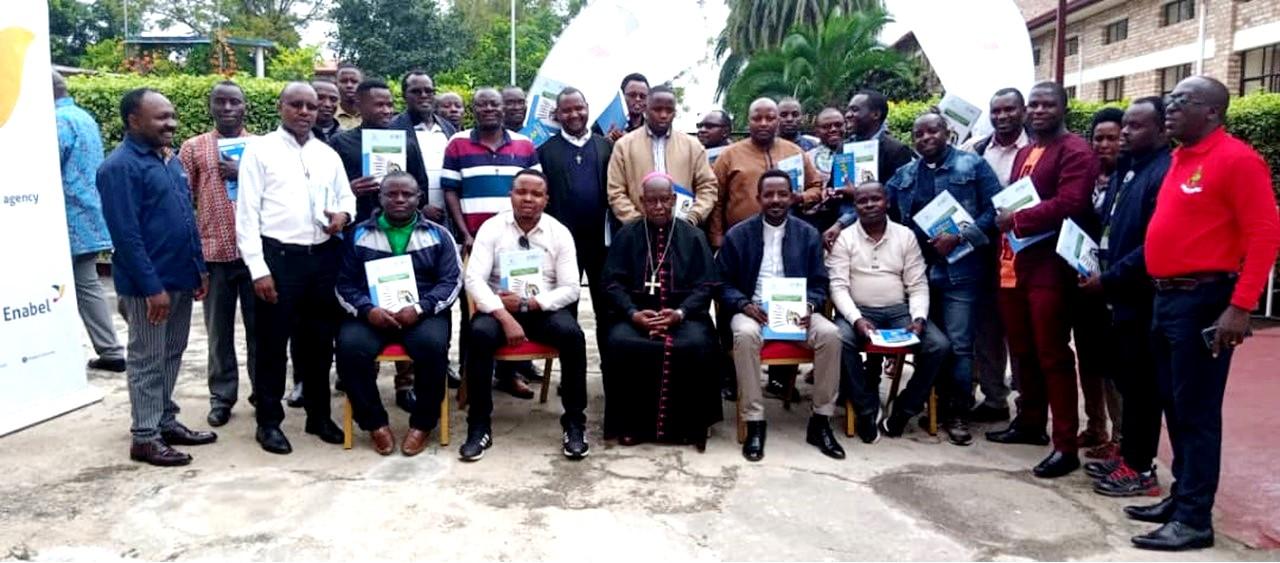
Rwanda: Enabel, Rwanda Biomedical Center and the Catholic Church partner to prevent drug abuse among young people
Denise NSANGA | 21/06/2022
Enabel/Barame project in collaboration with the Mental Health Division of Rwanda Biomedical Center (RBC) organized a five-day workshop, from 20-24 June 2022, for Catholic Church Priests in charge of youth (chaplains) from the seven districts of intervention. The training underway in Muhanga District, which brought together 60 priests from 53 catholic parishes and dioceses, was officially launched by the President of Episcopal Commission for Youth, Bishop Selvirien Nzakamwita. It aims at improving their knowledge in drug abuse and substance use prevention including the targeted communication skills for a positive behavior change. Participants will also acquire skills in individual counselling to be able to support the young people using or at risk of abusing the drug including alcohol. At the same time, the developed communication materials including peer support group tool kit will be distributed to the chaplains for its use while communicating with adolescent about the prevention and the reintegration of drug users. At the end of this workshop, these priests are expected to closely work with Youth representatives at parish level and use their existing communication channels up to the community level through ecclesial basic communities to support deployed efforts in fighting the drug abuse, support positively the users towards a free drug young generation. The workshop will also induce the development of action plan to enhance communication towards behavioral change of young people using the catholic church structures from national to the community level. This workshop is aligned with the principle of multisectoral approach to fight against drug and substance use and in relation to the recent findings of a study initiated by Barame/Enabel in 2020 on substance use in Rwanda which revealed that the in past 30-day prevalence among youth was 34% for alcohol, 8.5% for tobacco smoking, 2.7% for cannabis, 0.2% for glue and 0.1% for drugs such as diazepam. The mean age of onset of alcohol, cannabis and heroine are 13.1, 16.8 and 18.5 respectively. It is expected to provide knowledge and basic skills on how to organize awareness sessions, detect and support youth with drug abuse issues and ensure early referrals for adequate management.
-
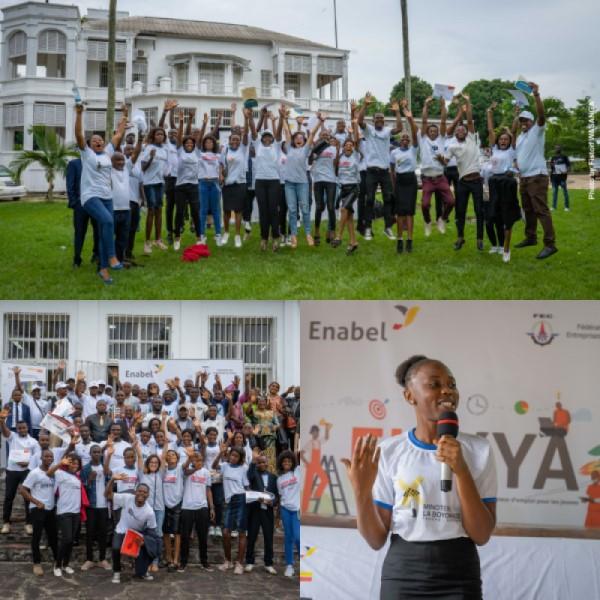
RDC: Concours des entrepreneur·e·s à Kisangani!
Aimé GIRUKWIGOMBA | 20/06/2022
La 1ère Edition du Concours des Entrepreneur·e·s de l'Incubateur Elykia est un succès!13 jeunes entrepreneur·e·s ont présenté "pitché" leurs projets devant un Jury de Techniciens du métier, Coachs, Chefs d'entreprise et Banquiers, ce Samedi, 18 juin 2022.Enabel en RD Congo, soutient via son projet EDUT, le développement d'Incubateurs pour accompagner l'auto-emploi des jeunes de Kisangani, en partenariat avec la FEC - Direction provinciale Tshopo. L'Incubateur Elykia est le fruit de cette collaboration et son modèle économique, ainsi que ses différents services (placement en entreprise, parcours entrepreneuriaux) sont en cours de structuration avec l'appui d'une expertise spécialisée OVATION.La participation de ces jeunes a été animée par une belle motivation, une volonté de persuasion et un fair play digne de grands compétiteurs.Chaque pitch a bien mérité d'être entendu, questionné et défendu !!! L'important c'est de participé, dit-on...Au final, 3 Meilleurs projets ont été primés sur base de 3 critères :- Projet le + viable : HD Madjembo (Matériaux de construction);- Projet le + créatif : MAFA (Apiculture);- Projet le + innovant : Minoterie La Boyomaise (Transformation agro-alimentaire).Les 3 projets ont chacun reçu des chèques cadeaux de 100 $ du sponsor officiel de l'évènement Equity BCDC et des cartes rechargeable de 150$ à retirer auprès de la TMB. Merci beaucoup !Des prix en nature et en espèce ont également été offert par d'autres sponsors - entreprises membres de la FEC - Direction provinciale Tshopo. Chaque participant a été récompensé ! Le Ministère provincial en charge des Finances et de l'entrepreneuriat a assuré que tous les projets accompagnés par Elykia bénéficieront d'une exonération fiscale de lancement d'entreprise.Bravo encore à tous et un grand merci aux équipes organisatrices.
-

Au Bénin, Enabel et AFD oeuvrent pour la protection sociale en santé
Reece-hermine ADANWENON | 17/06/2022
Installée dans le département des Collines en août 2021 la Plateforme Nationale des Utilisateurs des Services de Santé PNUSS. Après 6 mois d’activités, a enregistré près de 250 plaintes. A la date d’aujourd’hui, 65 % de ces plaintes reçues sont déjà résolues ceci à la grande satisfaction des plaignants. Au Bénin, sur les 34 zones sanitaires que compte le pays, la PNUSS est présente dans 13 zones sanitaires. Pour ce déploiement, la PNUSS a été accompagnée par les Projets PASRIS / Equite mise en œuvre par l’Agence belge de développement Enabel au Bénin qui fait de la protections sociale en matière de santé une priorité. Ces projets contribuent à la mise en place des initiatives qui renforcent l’autonomie des populations et promeuvent les droits à la santé.Découvrez dans cette vidéo présentée à la Conférence « La protection sociale en santé: un chemin de lutte contre les inégalités » qui se déroule au comment les actions de la PNUSS dans le département des Collines contribuent à réduire les inégalités en matière de protection sociale en santé.
-
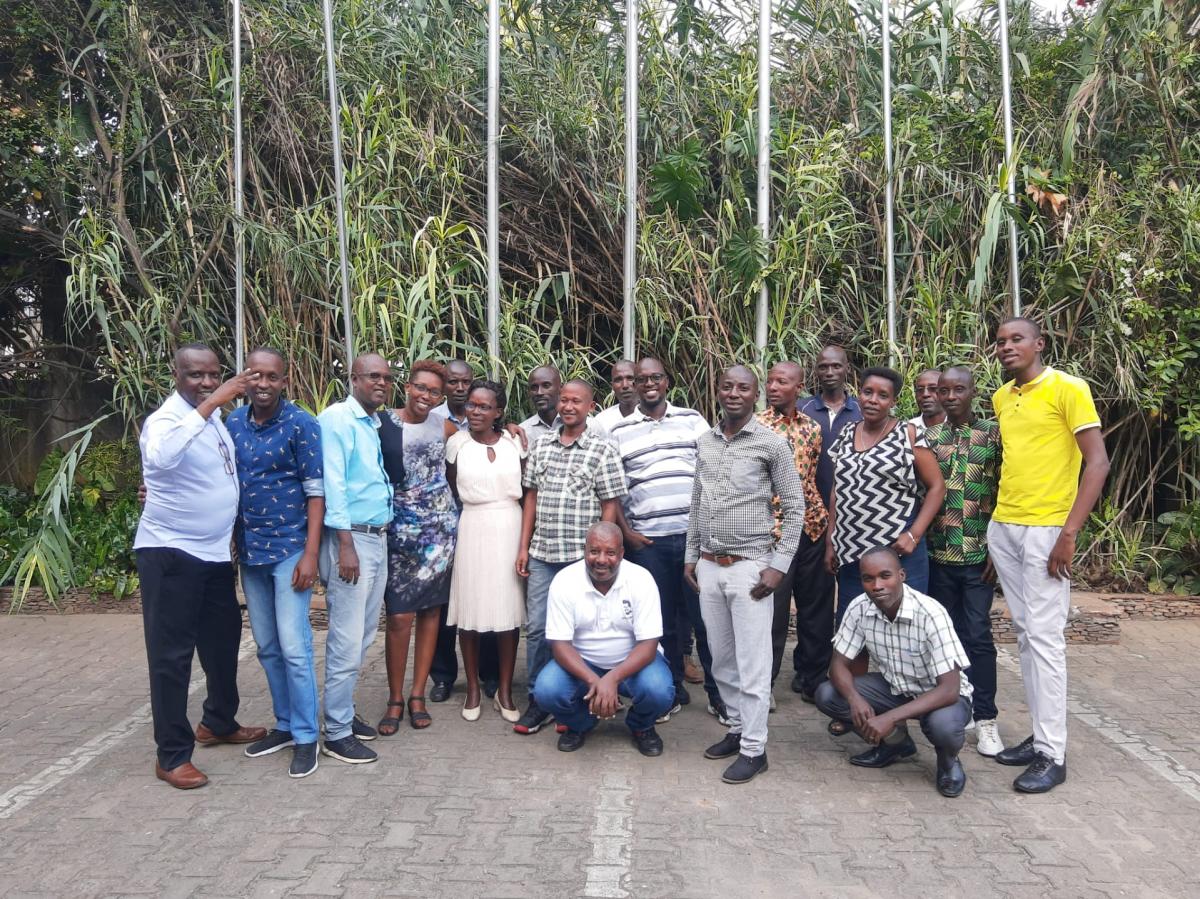
Burundi: Formation à l’exploitation de bibliothèques numériques dans 8 Centres d’Enseignement de Métiers
Philippine DE BRUYN | 17/06/2022
L’un des objectifs du projet RESICODI (Resilience to Covid through Digitalisation) est d’améliorer et implémenter des solutions numériques pour favoriser la qualité et la continuité de l'enseignement et des services éducatifs en réponse à la crise sanitaire. En partenariat avec les directions et formateur•trices des centres, les équipes du projet, à la suite de la pose d’un diagnostic des besoins, ont entrepris l’implémentation d’une solution permettant un meilleur accès aux ressources numériques et ceci, même sans accès à une connexion internet stable. Pour ce faire, Enabel et Bibliothèques sans Frontières collaborent afin de mettre en place des « Ideas Cubes », des bibliothèques numériques et autonomes, qui fonctionnent sans connexion internet pour fournir un accès à l’information dans les endroits les plus reculés. Dans ces bibliothèques numériques, les utilisateur·rices ont accès à pas moins de 60 capsules vidéo tournées pas une équipe de jeunes vidéastes de Bujumbura en Kirundi (et sous-titrées en français) et développées expressément dans le cadre du projet-sœur ACFPT (Appui Complémentaire à la Formation Professionnelle et Technique). L’objectif de la collaboration est de mettre à disposition dans des centres d’enseignement de métiers ces bibliothèques numériques mais aussi une implémentation de long terme permettant aux formateur•trices de s’approprier le matériel et l’utiliser avec leurs élèves. C’est dans cette dynamique que s’inscrivent les formations données aux équipes enseignantes ayant eu lieu récemment dans 8 Centres d’Enseignement des Métiers. Ces formations, organisées en collaboration avec les centres partenaires, permettent aux apprenant•es d’échanger sur la pertinence de l’outil, sa prise en main mais aussi les besoins spécifiques rencontrés sur le terrain. Au total, ce sont 43 de formateur•trices ayant suivi 3 jours de formation. « J’ai beaucoup apprécié le dynamisme du groupe de formateurs et directeurs techniques. » - Arthémon Bayisabe, formateur IDC de Bibliothèques Sans Frontières « Nous tenons à remercier Enabel et Bibliothèques Sans Frontières pour la bonne collaboration et le suivi. Nous ferons de notre mieux pour mettre en application ce que nous avons appris et de le transmettre à nos collègues. » - Hamenyimana Yvonne, CEM/CFP Don Bosco Buterere À propos de RESICODI Une partie de la réponse d'urgence de l'Union Européenne au COVID-19 est l'action "Résilience au COVID-19 par la digitalisation" (RESICODI). Cette action est co-financée par l'Union européenne et le Ministère Fédéral Allemand de la Coopération Economique et du Développement (BMZ) et est mise en œuvre conjointement par Enabel et GIZ.
-
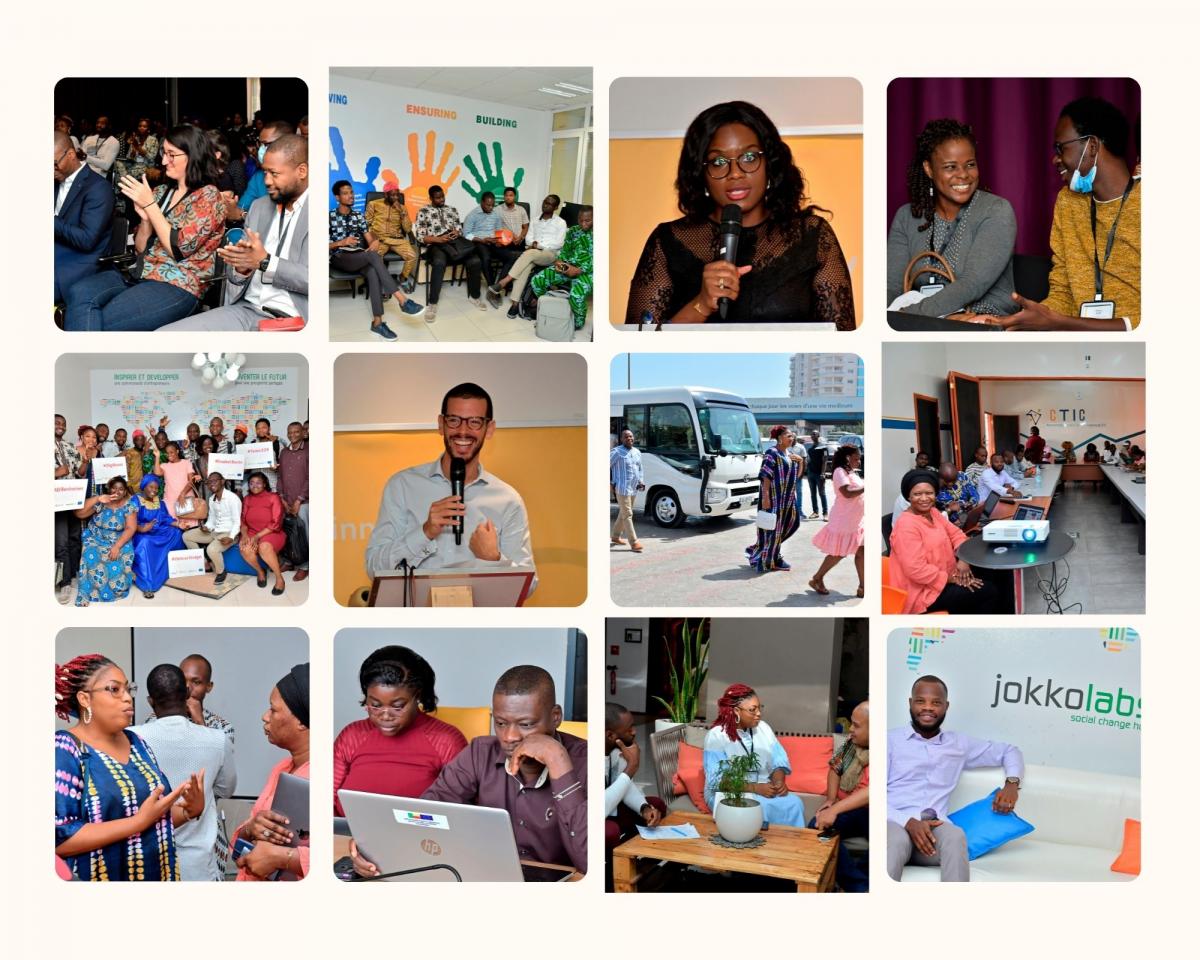
Digiboost Study Tour Dakar : 18 Structures d’Appui à l’Entrepreneuriat Innovant du Bénin en immersion au Sénégal!
Reece-hermine ADANWENON | 16/06/2022
Dans le cadre d’une mission d’apprentissage organisée par le projet DigiBoost financé par l’Union européenne et exécuté par Enabel au Bénin, plus d’une vingtaine de Responsables des SAEI béninois ont séjourné au Sénégal du 5 au 12 juin 2022. Cette délégation de 24 personnes constituées de 18 Structures d’Appui à l’Entrepreneuriat Innovant (SAEI), de partenaires et acteurs clés du projet Digiboost a eu l’opportunité de découvrir les innovations majeures de l’écosystème numérique sénégalais et de prendre part à l’événement « l’Afrique Innove » organisé par Afric’innov. Les deux premières journées de travail ont permis à la délégation des SAEI Béninoises d’apprendre les bonnes pratiques de l’écosystème entrepreneurial sénégalais à travers la visite de nombreuses structures comme : la DER-le Consortium Jeunesse Sénégal-Orange Digital Center- CONCREE- la CTIC Dakar- Women’s Investment Club (WIC) Capital- Jokkolabs Dakar- l’USAID Entrepreneuriat & Investissement. Pour le compte de la troisième et quatrième journée de travail, la délégation des SAEI béninoises a participé à l’évènement « l’Afrique Innove » organisé par Afric’innov les 09 et 10 juin 2022 au Novotel de Dakar, et qui a rassemblé les acteurs de l’écosystème entrepreneurial Africain. La journée du 09 juin fut marquée par des panels et des ateliers de formation à l’endroit des dirigeants des SAEI présents. Les différentes thématiques abordées ont permis aux différentes délégations de prendre connaissance des outils existants pouvant améliorer la gestion des équipes et des finances de leur SAEI. Cette première journée à l’événement « l’Afrique Innove » a donc permis à chacun des membres de la délégation des SAEI béninoises de renforcer ses compétences managériales afin de redéfinir au mieux les objectifs stratégiques de sa structure pour une meilleure planification de ses activités. La journée du 10 juin fut une journée d’échanges, riche en thématique et de partage d’expériences qui a permis aux participants de mieux appréhender le rôle des SAEI dans le développement des industries culturelles et créatives en Afrique. Cette deuxième journée a ainsi permis à chacun des membres de la délégation des SAEI béninoises de découvrir une autre dimension des écosystèmes et toutes les opportunités qui vont avec. Pour le compte de la dernière journée de travail, la délégation des SAEI béninoises a visité deux autres acteurs de l’écosystème sénégalais que sont : Incubateur ISM Incub & IESA Incub-Impact Hub Dakar. Ce fut un moment de partage d’expérience qui a permis à la délégation béninoise d’apprendre de ces structures qui interviennent en tant qu’accélérateurs de projets innovants et d’entrepreneuriat culturel.
-
Uganda: Gaba earning big from hairdressing
Catherine BEKUNDA | 15/06/2022
Sarah Gaba is a 26-year-old South Sudanese refugee currently living in Bidi Bidi refugee settlement. She dropped out of school at senior two due to the war that broke out in her country. She hopes to go back home one day when peace is restored. Gaba came to Uganda on 16th October 2016 with her mother and a little son. Hers is a story of hope and hard work. She was trained in hairdressing in 2019, a trade that has seen the young mother save Sh.11,000 on a weekly basis in her Village Saving Group. This has enabled Gaba to take care of her family. “I think I have about Sh.200,000 on my account,” she says with a smile. Gaba earns an average of Sh. 250,000 from plaiting hair and Sh.400,000 from selling braids monthly. To expand her business, she got a loan of Sh.300,000 from her savings group to construct a small saloon. “The loan is very expensive because it attracts an interest of 10% per month,” Gaba explains. Her main challenge is the lack of electricity which is a necessity for some hairstyles. She however improvises by requesting customers to sit under the sun to dry their hair. “If I can be helped to get solar power, it would increase my sales and output. Solar is good because it’s a one off cost,” she reasons. Gaba also lacks a signpost for her business. She relies on her good works as a marketing tool. A signpost would cost Sh.100,000 which for now she finds expensive. Having participated in a supplementary training on business management, Gaba has improved her customer relations and better negotiates with suppliers. Unlike previously, she also now keeps records to know whether the businesses is making profits or losses. “The training was helpful because I previously used to disappoint my customers, I have learned to inform and convince them now. When I am fully booked, they now wait,” Gaba shares. In the hope of making life better for others, Gaba has shared her skills with three other girls who have gone ahead to start their own saloons. She is currently training another set of three. Although her formal education was cut short by the pangs of war, Gaba has big dreams for her son. “My dream is to take my son to a boarding school in Koboko or Arua district,” she says. Although she earns some income from the saloon business, Gaba hopes to double her monthly earnings from the current Sh.400,000. More income, she says, will enable her to meet all expenses including school fees and medical care for the family. Gaba was trained by Enabel through the Norwegian Refugee Council under the Support to Skilling Uganda (SSU) project financed by the European Union Emergency Trust Fund. The project focuses on increasing access to quality skills development through offering training scholarships, entrepreneurship skills and start-up kits for refugees and host communities.
